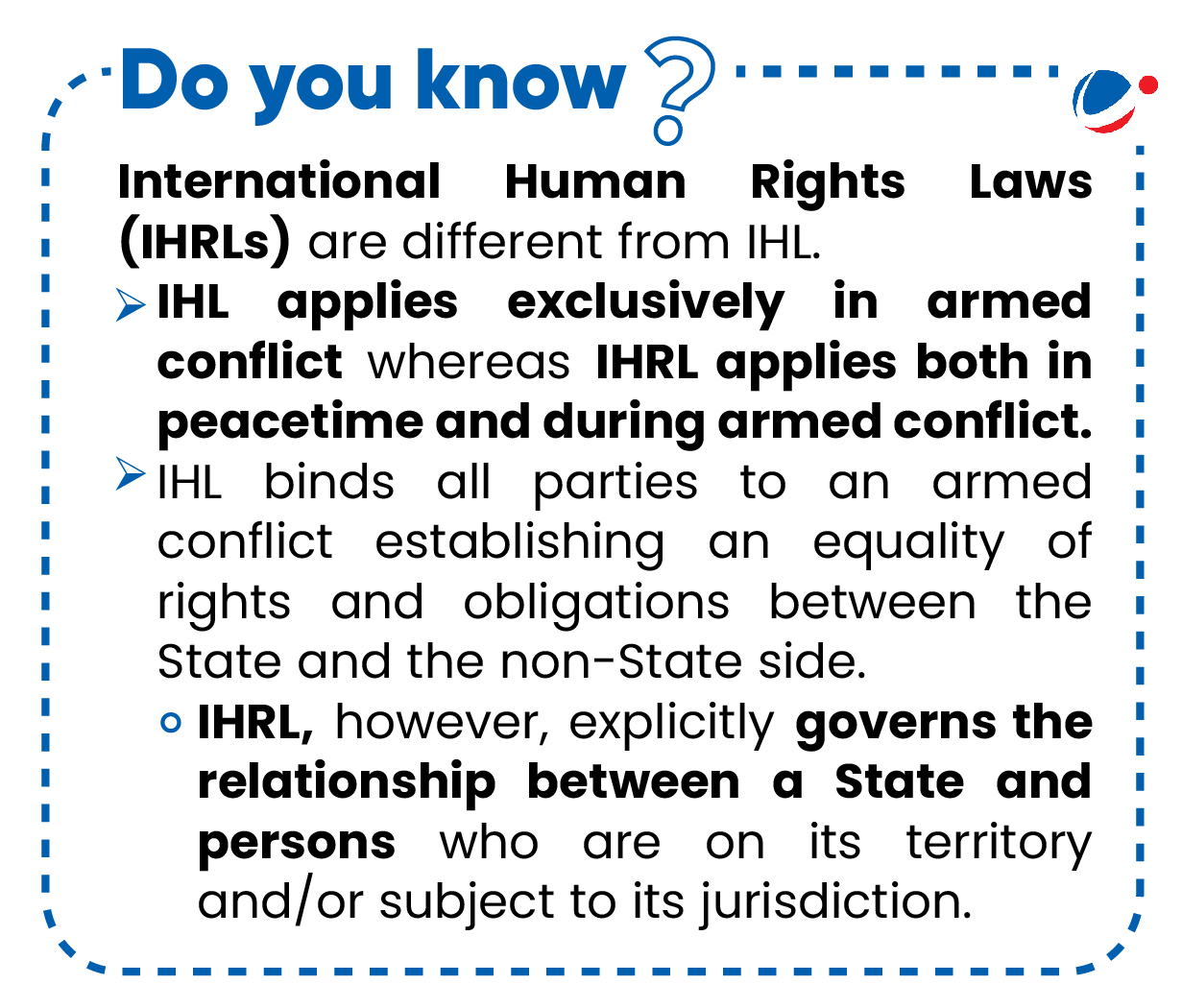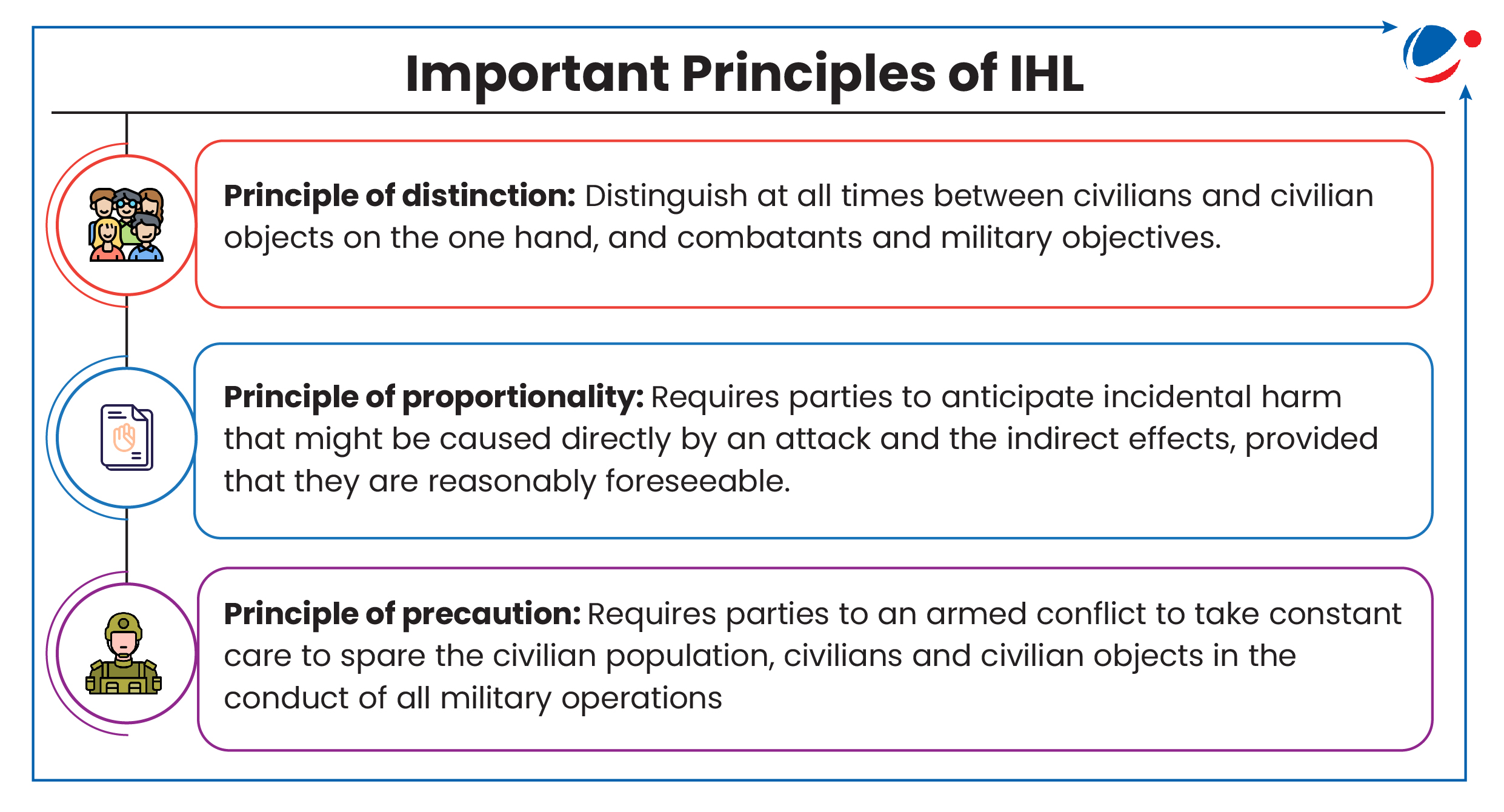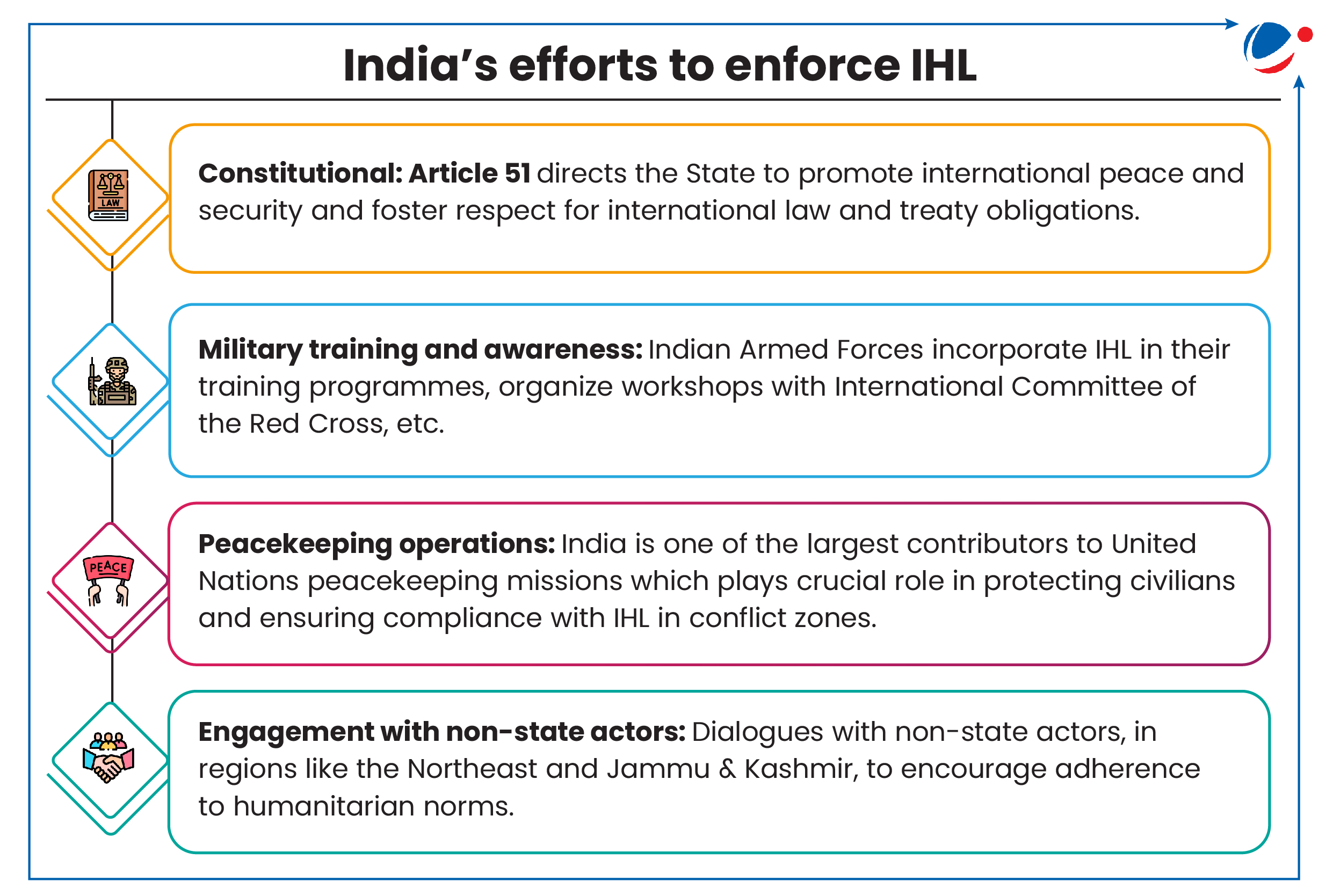Why in the News?
2024 marks the 75th anniversary of the Geneva Conventions of 1949 which is the cornerstone of International Humanitarian Law (IHL).
More on the News

- Geneva Conventions are a series of treaties on the treatment of civilians, Prisoners of War (PoWs), and soldiers who are otherwise renderedhors de combat ("outside the fight") or incapable of fighting.
- The ongoing conflict between Russia and Ukraine and the conflict in Gaza displayed tragic violations of humanitarian laws exposing the inadequacies of IHL in restraining atrocities.
About International Humanitarian Law
- IHL, also known as the law of war or law of armed conflict, is a set of rules that seek for humanitarian reasons to limit the effects of armed conflict and protect persons who are not or who are no longer participating in hostilities.
- 4 Geneva Conventions of 1949 (GC I, II, III and IV) and its 3 Additional Protocols form the foundation of the modern IHL.
- These have been universally acceded to or ratified by all the nations in the world.
- It applies in all cases of declared war, or in any other armed conflict between nations. They also apply in cases where a nation is partially or totally occupied by soldiers of another nation, even when there is no armed resistance to that occupation.
- Other treaties concerning IHL include:
- 1954 Hague Convention for the Protection of Cultural Property.
- 1972 Biological Weapons Convention.
- 1993 Chemical Weapons Convention.
- 1998 Rome Statute for International Criminal Court.

Challenges in effective enforcement of IHLs
Political
- State Interests vs. Humanitarian Concerns: States often prioritize national security and political interests over humanitarian obligations, resulting in selective compliance with IHL.
- Non-State Actors: Rise of non-state armed groups pose significant challenge to implementation of IHLs which often do not recognize or adhere to them.
Legal
- Lack of effective enforcement mechanisms: Violations often go unpunished due to the lack of central enforcement authority.
- e.g., In the Syrian Civil War, despite numerous documented violations of IHL, including the use of chemical weapons, enforcement has been inconsistent.
- Jurisdictional Issues: Principle of state sovereignty can limit international jurisdiction, complicating efforts to hold violators accountable, particularly in non-international armed conflicts such as Rohingya conflict in Myanmar.
Global Governance
- Veto power in UN Security Council (UNSC): UNSC often faces gridlock due to veto power held by its five permanent members (P5) preventing decisive action against instances of IHL violations.
- e.g., During the Syrian Civil War, Russia and China repeatedly used their veto power to block resolutions aimed at addressing war crimes.
- Weak mandate and resources: Peacekeeping missions often have limited mandates and resources, which restrict their ability to protect civilians and enforce IHL.
- e.g., UN Mission in Darfur (UNAMID) struggled with inadequate resources and restrictions imposed by the Sudanese government.
Technological
- Autonomous and remote weapons: Use of autonomous weapons systems such as lethal autonomous drones, raises ethical and legal questions about accountability and compliance with IHL.
- Cyber Warfare: Application of IHL in cyberspace is still underdeveloped, and there is uncertainty about how existing laws apply to cyber conflicts.

Way Forward
Global Governance
- Reforms in UNSC: To make it more representative and restrict the use of veto power in situations involving mass atrocities and serious violations of IHL as have recently been asserted by G4 Nations.
- Enhanced role of regional organizations: Institutions such as International Committee of the Red Cross, etc., should encourage regional organizations like the African Union (AU), European Union (EU), and ASEAN to take more active roles in enforcing IHL.
Political
- Strengthen national legal systems: Encourage states to incorporate IHL into their domestic legal systems, making it easier to prosecute violators at the national level.
- Engaging non-state actors: Encourage non-state actors to sign 'Deeds of Commitment' to ensure respect for humanitarian norms by them.
- 'Deeds of Commitment' is a formal humanitarian commitment that armed non-State actors sign to formally express their agreement to abide by humanitarian norms.
- Mandating IHL compliance in Peace agreements: Ensure that peace agreements explicitly include commitments to adhere to IHL, with clear mechanisms for monitoring and enforcement.
Technological adaptation
- Cybersecurity in IHL: Develop specific guidelines and protocols for applying IHL in cyber warfare, ensuring clear distinctions between civilian and military targets to protect civilian critical information infrastructure.
- Regulating autonomous weapons: Internationally regulate development and deployment of autonomous weapons systems to ensure they comply with IHL principles, particularly those related to distinction and proportionality.



